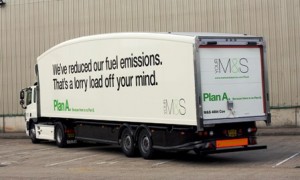Date and timeOctober 26th 2pm – 4.30pm |
LocationBusiness Executive Centre / Esmee Fairbairn Building, Edinburgh Campus, Heriot-Watt University |
ContactAlan McKinnon If you have questions about this workshop please get in touch |
Carbon Accounting in the Freight Transport and Logistics Sector
 This workshop will be of interest to companies which move, store and handle freight, transport planners, government officials, consultants and academics.
This workshop will be of interest to companies which move, store and handle freight, transport planners, government officials, consultants and academics.
The movement of freight within the UK accounts for roughly 6-7% of the country’s total CO2 emissions. Related logistical activity, such as warehousing and materials handling, adds another 1-2%. The Freight Transport Association has recently set a target for reducing the carbon intensity of freight deliveries in the UK by 8% by 2015. Before companies can develop strategies for decarbonising their logistics operations, they need to find an accurate and consistent method of carbon measurement. The Department for Transport and DEFRA have recently provided guidance to companies on the carbon footprinting of their freight transport operations. Efforts are also being made at an international level to agree standards for the allocation of CO2 between freight consignments sharing the same vehicle.
This workshop will review the issues that need to be resolved when measuring CO2 emissions from freight transport / logistics and examine software tools that can assist the carbon footprinting exercise. It will relate to all freight transport modes and to logistics operations at different geographical scales. Participants will be encouraged to discuss their experiences of carbon auditing in this field.
About the Speakers
The session will be facilitated by
Agenda
Welcome and introductions
Nature of greenhouse gas emissions from logistics
Carbon measurement issues:
- defining the boundaries and ‘Scopes’
- choice of carbon intensity values for logistical activities and transport modes
- allocation of emissions between consignments
Evolving standards and protocols
Carbon calculators for the logistics sector
From carbon measurement to carbon management

